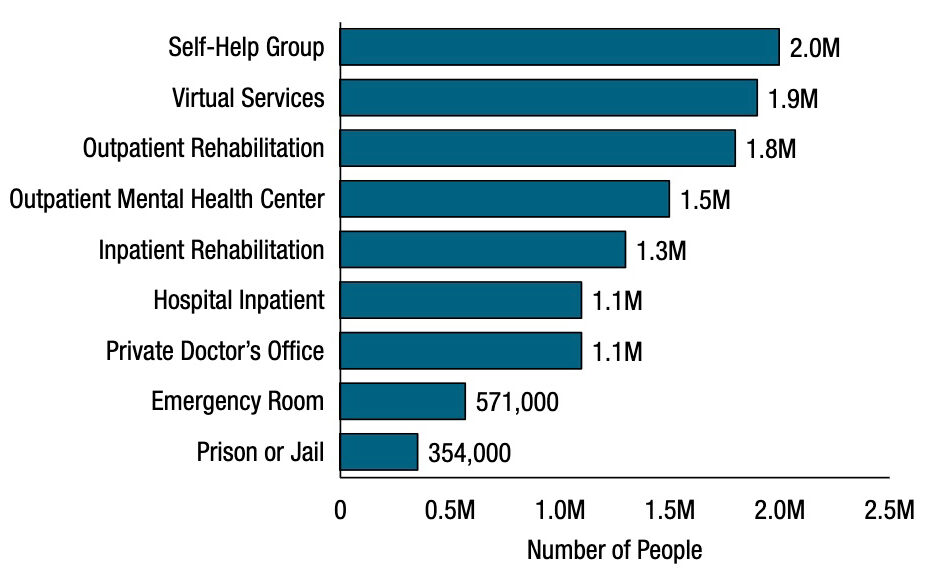
Internationally, alcohol results in 3.3 million deaths each year. Opioid overdoses have become the leading cause of accidental death in the United States. The prevailing paradigm of SUD treatment is through face-to-face therapy sessions that are sometimes provided in combination with SUD treatment pharmacotherapies. Telemedicine applications can potentially broaden access to SUD information, services, and support. Several telemedicine technologies have emerged to augment traditional treatment approaches, with many supported by research evidence. Counselors understand and appreciate the need to connect with patients between appointments. Similarly, patients want the safety net of support and community that digital technologies can provide.
Use of Telemedicine in Addiction Treatment: Current Practices and Organizational Implementation Characteristics
Todd Molfenter, Roger Brown, Andrew O’Neill, Ed Kopetsky, and Alexander Toy
https://www.ncbi.nlm.nih.gov/pmc/articles/PMC5866865/
Treatment Locations in 2022 (SAMHSA)

Advantages of Virtual/Online IOP (Intensive Outpatient Treatment)
- Convenience: One of the most significant advantages of virtual IOP is the convenience it offers. By eliminating the need for travel and allowing individuals to participate in therapy sessions from home, virtual IOP ensures that treatment is easily accessible to anyone, regardless of their location or mobility limitations. This convenience factor is particularly beneficial for individuals who live in remote areas or have busy schedules.
- Privacy and Confidentiality: Virtual IOP provides a high level of privacy and confidentiality. Many individuals feel more comfortable discussing sensitive topics in the privacy of their own homes, allowing for a greater sense of security and openness during therapy sessions. With secure and encrypted platforms, virtual IOP ensures that personal information remains confidential, further enhancing the trust between clients and therapists.
- Flexibility: Another advantage of virtual IOP is the flexibility it offers. Traditional in-person treatment programs often have rigid schedules, making it challenging for individuals to balance their personal and professional responsibilities. Virtual IOP allows for greater flexibility in scheduling therapy sessions, making it easier for individuals to participate in treatment without disrupting their daily routines.
- Access to Specialized Care: Virtual IOP breaks down geographical barriers, providing individuals with access to specialized care that may not be available in their local area. This is particularly beneficial for individuals who require treatment from experts in specific fields or those seeking culturally competent care. Online platforms enable individuals to connect with therapists and counselors who specialize in their unique needs, ensuring they receive the highest quality of care.
- Supportive Community: Virtual IOP fosters a supportive community environment. Through group counseling sessions and virtual support groups, individuals can connect with peers who are going through similar challenges. This sense of community can be incredibly empowering, as it provides individuals with a network of support, understanding, and encouragement throughout their recovery journey.
